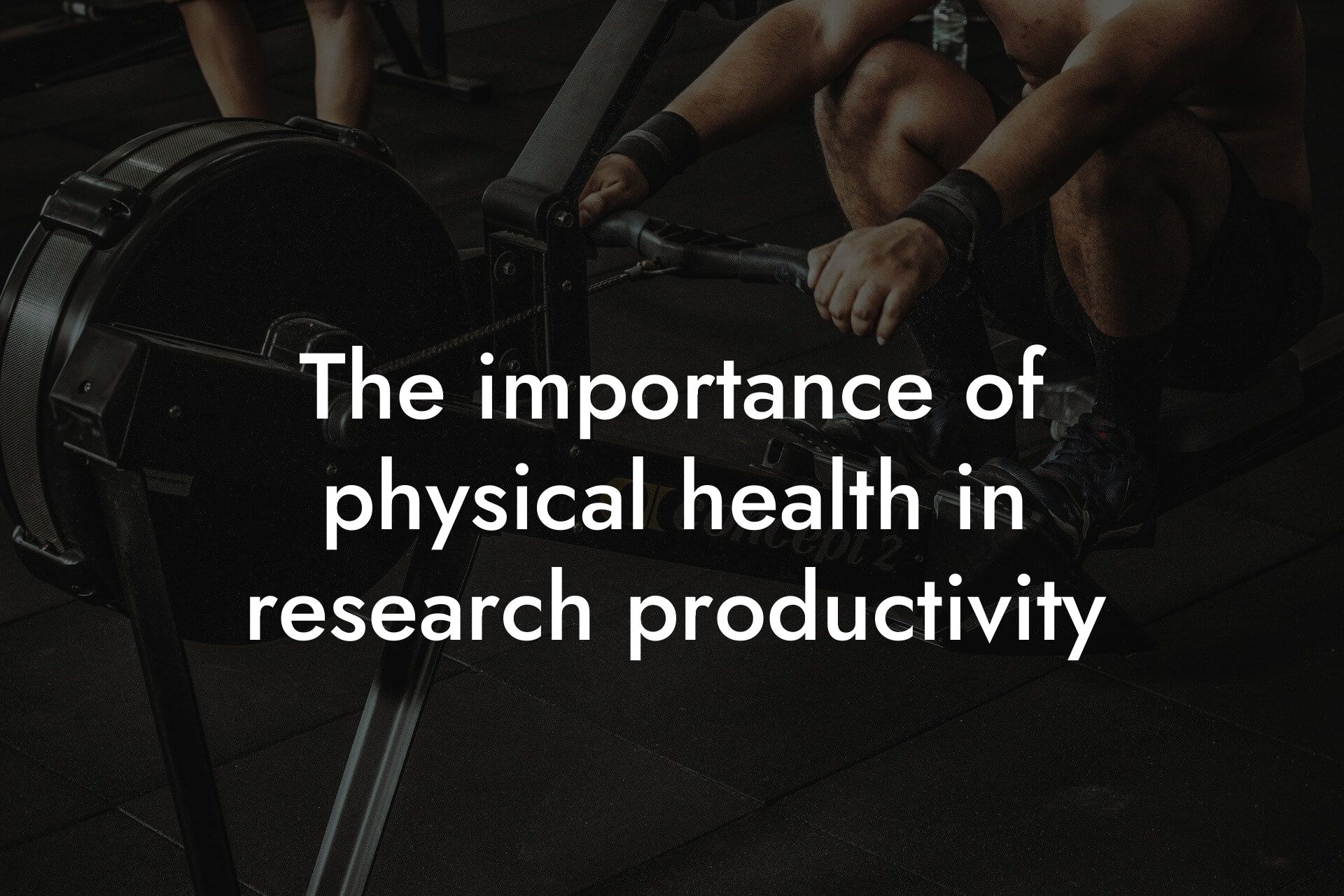As high-earning professionals, you understand the importance of maintaining a healthy body and mind to perform at your best. At Tano Performance Group, we believe that achieving optimal body composition is crucial for not only physical appearance but also for cognitive function. In this article, we'll delve into the latest research on the impact of body composition on cognitive function, and how our DEXA machine can help you unlock your full potential.
Table of Contents
What is Body Composition?
Body composition refers to the proportion of fat mass to lean mass in the body. Lean mass includes muscle, bone, and other non-fat tissues, while fat mass includes both essential and non-essential fat. Maintaining a healthy body composition is essential for overall health, as excess body fat has been linked to various chronic diseases, including diabetes, cardiovascular disease, and certain types of cancer.
The Link Between Body Composition and Cognitive Function
Research has shown that there is a significant link between body composition and cognitive function. Studies have consistently demonstrated that individuals with a higher percentage of body fat tend to perform poorly on cognitive tasks, such as memory, attention, and processing speed. On the other hand, individuals with a higher percentage of lean mass tend to perform better on these tasks.
One study published in the International Journal of Obesity found that obese individuals performed significantly worse on cognitive tasks compared to lean individuals. Another study published in the Journal of Clinical Endocrinology and Metabolism found that individuals with a higher percentage of body fat had reduced cognitive function, including reduced memory and attention.
The Role of Inflammation
Inflammation is a key player in the link between body composition and cognitive function. Excess body fat, particularly visceral fat, leads to chronic inflammation, which can damage brain cells and disrupt cognitive function. Inflammation has been linked to various neurodegenerative diseases, including Alzheimer's and Parkinson's.
Studies have shown that individuals with a higher percentage of body fat tend to have higher levels of inflammatory markers, such as C-reactive protein (CRP). Elevated CRP levels have been linked to reduced cognitive function and increased risk of dementia.
The Impact of Body Composition on Neuroplasticity
Neuroplasticity refers to the brain's ability to adapt and change in response to new experiences and learning. Research has shown that body composition can impact neuroplasticity, with excess body fat leading to reduced neuroplasticity.
One study published in the journal NeuroImage found that obese individuals had reduced gray matter volume in the brain, which is associated with reduced neuroplasticity. Another study published in the journal Psychoneuroendocrinology found that individuals with a higher percentage of body fat had reduced cognitive flexibility, which is a key component of neuroplasticity.
The Importance of Lean Mass
Lean mass, particularly muscle mass, plays a critical role in cognitive function. Muscle mass is a key component of lean mass, and research has shown that individuals with higher muscle mass tend to perform better on cognitive tasks.
One study published in the Journal of Gerontology found that older adults with higher muscle mass had better cognitive function, including better memory and executive function. Another study published in the Journal of Clinical Endocrinology and Metabolism found that individuals with higher muscle mass had improved cognitive function, including improved attention and processing speed.
How DEXA Scans Can Help
At Tano Performance Group, we use DEXA scans to provide a comprehensive assessment of body composition. DEXA scans use dual-energy X-ray absorptiometry to measure bone density, lean mass, and fat mass. This information can be used to identify areas for improvement and develop a personalized plan to optimize body composition.
By using DEXA scans, we can help individuals identify potential cognitive health risks associated with excess body fat and develop a plan to improve lean mass and reduce inflammation. Our team of experts will work with you to develop a personalized plan that takes into account your unique body composition and health goals.
In conclusion, the impact of body composition on cognitive function is a critical area of research that has significant implications for overall health. Maintaining a healthy body composition, particularly a high percentage of lean mass, is essential for optimal cognitive function. By using DEXA scans and developing a personalized plan to optimize body composition, individuals can improve cognitive function, reduce inflammation, and reduce the risk of chronic diseases.
At Tano Performance Group, we are committed to helping high-earning professionals achieve optimal body composition and cognitive function. Contact us today to learn more about our DEXA scans and how we can help you unlock your full potential.
Frequently Asked Questions
What is the relationship between body composition and cognitive function?
Research has shown that there is a significant relationship between body composition and cognitive function. Studies have found that individuals with a higher percentage of body fat, particularly visceral fat, are more likely to experience cognitive decline and impaired cognitive function. On the other hand, individuals with a higher percentage of lean muscle mass tend to have better cognitive function and a lower risk of cognitive decline.
How does body fat affect cognitive function?
Body fat, particularly visceral fat, produces pro-inflammatory cytokines, which can lead to chronic inflammation in the body. This inflammation can damage brain cells and disrupt cognitive function. Additionally, excess body fat can lead to insulin resistance, which can further exacerbate cognitive decline.
What is the impact of muscle mass on cognitive function?
Muscle mass, on the other hand, has been shown to have a positive impact on cognitive function. Muscle mass is associated with higher levels of neurotrophic factors, which are proteins that promote the growth and survival of brain cells. Additionally, muscle mass is also associated with better insulin sensitivity, which can help to reduce the risk of cognitive decline.
How does bone density affect cognitive function?
Bone density has also been linked to cognitive function. Studies have found that individuals with osteoporosis, a condition characterized by low bone density, are at a higher risk of cognitive decline and dementia. This is because bone density is closely linked to overall health, and low bone density can be a sign of underlying health issues that can affect cognitive function.
What are the key findings of research on body composition and cognitive function?
Research has consistently shown that body composition plays a significant role in cognitive function. Key findings include: a higher percentage of body fat is associated with poorer cognitive function, a higher percentage of lean muscle mass is associated with better cognitive function, and bone density is closely linked to cognitive function.
What are the implications of these findings for high-earning professionals?
These findings have significant implications for high-earning professionals who are interested in maintaining their physical appearance and overall health. By prioritizing a healthy body composition, high-earning professionals can reduce their risk of cognitive decline and maintain optimal cognitive function, which is essential for success in their careers.
How can I maintain a healthy body composition?
Maintaining a healthy body composition requires a combination of regular exercise, a balanced diet, and stress management. Aim to engage in at least 150 minutes of moderate-intensity exercise per week, eat a diet rich in whole foods and lean protein, and prioritize stress-reducing activities such as meditation and yoga.
What types of exercise are most effective for improving body composition?
Resistance training, such as weightlifting, is particularly effective for improving body composition. This type of exercise helps to build lean muscle mass, which can help to improve insulin sensitivity and reduce the risk of cognitive decline. Additionally, high-intensity interval training (HIIT) has also been shown to be effective for improving body composition.
How does diet affect body composition?
Diet plays a critical role in maintaining a healthy body composition. A diet rich in whole foods, fruits, vegetables, and lean protein can help to support muscle growth and reduce body fat. Avoid processed and high-sugar foods, which can lead to inflammation and disrupt body composition.
What role does stress play in body composition?
Chronic stress can have a significant impact on body composition. When we experience stress, our bodies produce cortisol, a hormone that promotes fat storage and muscle breakdown. This can lead to an increase in body fat and a decrease in lean muscle mass. Prioritizing stress-reducing activities such as meditation and yoga can help to mitigate the negative effects of stress on body composition.
How can I measure my body composition?
There are several ways to measure body composition, including dual-energy X-ray absorptiometry (DXA), bioelectrical impedance analysis (BIA), and skinfold measurements. These tests can provide a accurate assessment of body fat percentage, lean muscle mass, and bone density.
What is the ideal body fat percentage for cognitive function?
The ideal body fat percentage for cognitive function varies by age and sex. Generally, a body fat percentage of 10-15% for men and 15-20% for women is considered optimal for cognitive function.
How does age affect body composition and cognitive function?
Age can have a significant impact on body composition and cognitive function. As we age, our bodies naturally lose muscle mass and bone density, which can lead to cognitive decline. However, regular exercise and a healthy diet can help to mitigate these effects and maintain optimal cognitive function.
What are the risks of not prioritizing body composition?
Not prioritizing body composition can have significant risks, including an increased risk of cognitive decline, dementia, and chronic diseases such as diabetes and cardiovascular disease. Additionally, poor body composition can also lead to reduced productivity, decreased energy levels, and a lower quality of life.
How can I incorporate body composition into my busy schedule?
Incorporating body composition into a busy schedule can be challenging, but there are several strategies that can help. Prioritize exercise and healthy eating, and try to incorporate physical activity into your daily routine, such as taking the stairs instead of the elevator or going for a short walk during your lunch break.
What are the benefits of prioritizing body composition for high-earning professionals?
Prioritizing body composition can have significant benefits for high-earning professionals, including improved cognitive function, increased energy levels, and a reduced risk of chronic diseases. Additionally, maintaining a healthy body composition can also improve overall quality of life and increase productivity.
How does body composition affect mental health?
Body composition can have a significant impact on mental health. Research has shown that individuals with a higher percentage of body fat are more likely to experience depression and anxiety, while individuals with a higher percentage of lean muscle mass tend to have better mental health outcomes.
What are the long-term effects of poor body composition?
The long-term effects of poor body composition can be significant, including an increased risk of chronic diseases, cognitive decline, and reduced quality of life. Additionally, poor body composition can also lead to reduced productivity, decreased energy levels, and a lower overall sense of well-being.
How can I get started with improving my body composition?
Getting started with improving body composition can be as simple as making a few small changes to your daily routine. Start by incorporating more physical activity into your day, eating a balanced diet, and prioritizing stress-reducing activities. Consult with a healthcare professional or registered dietitian for personalized advice and guidance.
What are the key takeaways from research on body composition and cognitive function?
The key takeaways from research on body composition and cognitive function are: body composition plays a significant role in cognitive function, a higher percentage of body fat is associated with poorer cognitive function, and a higher percentage of lean muscle mass is associated with better cognitive function. Additionally, bone density is closely linked to cognitive function, and prioritizing a healthy body composition can reduce the risk of cognitive decline.
How can I maintain motivation to prioritize body composition?
Maintaining motivation to prioritize body composition can be challenging, but there are several strategies that can help. Set specific and achievable goals, track progress, and celebrate small victories. Additionally, finding a workout buddy or accountability partner can also help to maintain motivation.
What are the benefits of working with a healthcare professional to improve body composition?
Working with a healthcare professional to improve body composition can have several benefits, including personalized guidance and advice, accountability, and support. A healthcare professional can help to develop a customized plan that takes into account individual needs and goals, and provide ongoing support and motivation.
Here are some related articles you might love...
- The importance of physical health in research productivity
- How researchers can maintain fitness during long lab hours
- Managing stress through physical fitness in scientific research
- Quick workouts for researchers during lab breaks
- Balancing lab work with personal fitness goals
- Nutrition strategies for maintaining focus during experiments
- The role of physical fitness in preventing research-related injuries
- How to stay active during sedentary research work
- How DEXA scans can benefit scientists and researchers
Zak Faulkner
Zak Faulkner is a leading authority in the realm of physical health and body composition analysis, with over 15 years of experience helping professionals optimise their fitness and well-being. As one the experts behind Tano Performance Group, Zak has dedicated his career to providing in-depth, science-backed insights that empower clients to elevate their physical performance and overall health.
With extensive knowledge of DEXA technology, Zak specializes in delivering comprehensive body assessments that offer precise data on body fat, muscle mass, bone density, and overall physique. His expertise enables individuals to make informed decisions and achieve their fitness goals with accuracy and confidence. Zak’s approach is rooted in a deep understanding of human physiology, combined with a passion for helping clients unlock their full potential through personalised strategies.
Over the years, Zak has earned a reputation for his commitment to excellence, precision, and client-focused service. His guidance is trusted by top professionals who demand the best when it comes to their health. Whether advising on fitness programs, nutritional strategies, or long-term wellness plans, Zak Faulkner’s insights are a valuable resource for anyone serious about taking their health and fitness to the next level.
At Tano Performance Group, Zak continues to lead our Content Team revolutionising how professionals approach their physical health, offering unparalleled expertise that drives real results.




